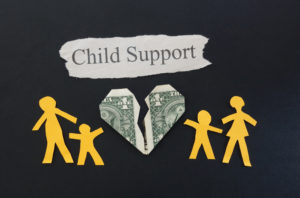Child Support Lawyer Virginia
 Child Support Lawyer Virginia
Child Support Lawyer Virginia
When a child’s parents are not married, family law judges are generally required to execute a formal child support order concerning the child’s financial wellbeing. Each state has its own formula for calculating mandatory child support obligations. If you are unsure of whether you are required to file for child support or pay child support, connect with a child support lawyer Virginia families trust to clarify your rights and options. In the event that you’re in a position to either pay or receive child support, a trusted Virginia child support lawyer from our firm can help you to navigate your rights and obligations under the law.
Financial Obligations Beyond Court-Ordered Support
It is important to understand that the care of children is very rarely financed exclusively through court-ordered child support. As a result, it is a good idea to understand some of the ways that you can manage your child’s financial needs beyond this formulaic and restrictive judicial process.
For example, if you and your child’s other parent remain active participants in your child’s life—however your legal and physical child custody arrangements have been ordered—chances are that you have a parenting agreement or parenting plan in place. If you’re currently navigating a divorce or romantic split and your child custody arrangement is not yet subject to a formal court order, you’ll likely be tasked with drafting a parenting plan in the near future. A parenting plan provides an excellent structure to detail some of your child’s financial needs in a setting that extends beyond formal child support orders.
Financial Considerations – Parenting Plans
As our firm’s Virginia child support lawyer team can explain in greater detail, parenting plans serve as a legally-enforceable way to set expectations concerning one’s co-parenting relationship. Meaning, you can use your agreement to detail how your co-parenting arrangements will function on a day-to-day basis in ways that are legally enforceable in the event that you or your child’s other parent refuses to honor its terms.
Most of the time, parenting plans are primarily concerned with the days upon which the affected child(ren) will reside with each parent. Also, parenting plans tend to govern common co-parenting concerns that have the potential to cause tension, such as how holidays and special occasions will be managed.
Parenting plans do not govern, nor do they detail formal court-ordered child support. However, you can use yours to address financial concerns beyond this formal order. For example, your parenting plan can spell out which parent is obligated to pay for extracurricular activities, or the cost of travel between households. It can note which parent will keep your child on their insurance. If the strict formula of formal child support orders doesn’t adequately address your child’s financial needs, the experienced Virginia legal team at May Law, LLP may be able to help you utilize your parenting plan to achieve necessary ends.
Common Child Support Misconceptions
If you want to get child support from your ex, it’s important to speak to a child support lawyer in Virginia promptly. A lawyer can assist you with the process and answer your questions. Here are some common misconceptions about child support.
Men are always the ones who pay child support
Many years ago, men were the main breadwinners in marriages. Therefore, they were generally the ones ordered to pay child support after getting divorced. However, that isn’t the case today. More and more women are in the workforce these days. If the woman earned a higher salary during the marriage, she would likely be ordered to pay child support.
Child support can’t be modified
Some people assume that once a child support order has been issued by a judge, it can’t ever be changed. This isn’t true. If there is a substantial change in circumstances, the judge may be able to modify the order. For example, if your ex pays child support and has recently lost a job, the judge may modify the order to reflect the change in income.
Parents who don’t pay child support may be denied visitation
A parent who fails to pay child support may face serious consequences. However, denied visitation isn’t one of them. While it’s frustrating to deal with an ex who won’t pay child support, you can deny him or her from seeing your kids.
Child support end when the child turns 18
This is another common misconception that a child support lawyer in Virginia hears. The truth is that child support doesn’t always automatically end once a child reaches the age of majority. If the child, for example, has a disability, he or she still may receive child support past the age of 18.
Parents who don’t see their children don’t have to pay child support
Some parents believe if they don’t spend time with their children, they aren’t obligated to pay child support. This couldn’t be further from the truth. Even if a parent doesn’t see his or her kids, that person is still responsible for financially supporting them.
Child support is tax deductible
This is yet another common myth about child support. Parents who pay child support are not permitted to deduct it from their taxes.
If you have additional questions about child support, schedule a consultation with a child support lawyer in Virginia today.